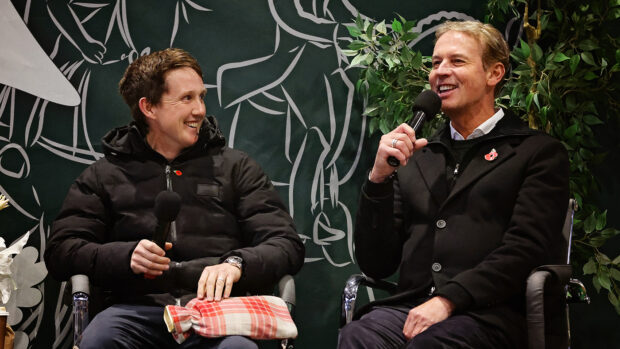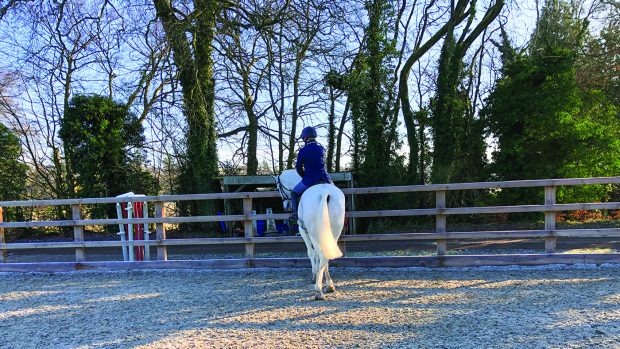Nicki Heath helps one of our “Sports Psychology for Success – Dressage” competition winners to improve her performance at competitions
Q. I have just started competing again for the first time since I was a teenage (about 10 years ago). I used to get light butterflies before entering the arena but I was always able to translate it into adrenaline for a better ride. Now when I enter the arena to ride my test I go numb. The test is over before it has even begun.
My horse is obedient and does what he’s told but I can’t ride him “normally”. It’s as if I am in a total trance. How can I learn to think during my tests? Also, when I enter the arena I feel like I want to shrivel up. I think my body language is saying to the judges “Please just ignore me”. How can I bring more presence to my test?
April Boehm
A. What you appear to be describing is a symptom of what we call cognitive anxiety. This is where the brain disowns the normal feelings of anxiety and as you put it “shuts down”.
You might be a person that benefits from “pumping up” before a competition, rather than using relaxation techniques. Physical exertion can either release the pent upbut suppressed adrenaline or create some that was not present in the first place.
Controlled adrenaline sharpens the brain and reflex responses. To increase your adrenaline you could try physical activity such as press ups or skipping in the lorry. Alternatively you could try getting angry at yourself or at another competitor, but contain your anger – I’m not suggesting you go and pick an argument with them!
Some competitors pick on someone to “hate” for a particular competition anddecide they have to beat that person. Making it personal seems to create the right level of tension for people who are a bit too laid back, and also seems to act as a mental focal point. I know it sounds daft, but it genuinely does work for some people.
A bit of directed aggression would also stop you feeling insignificant in front of the judge. Imagine that you just have to look better than your targeted adversary for the day. Alternatively your “target” could be the judge. This should make you ride in a more positive way enabling you to get that little bit extra out of your horse.
I think you need a specific goal to make you more focussed rather than just general aspirations for the test. If having a target doesn’t work try to focus onimproving one aspect of your work rather than seeing the test as a whole.
If this approach works then your problem may be associated with a lack of direction in your overall preparation and game plan. The “Sports Psychology for Success – Dressage” tapes contain plenty of advice on improving your preparing and setting yourself goals.
Good Luck and I hope you enjoy the tapes!
Nikki Heath



